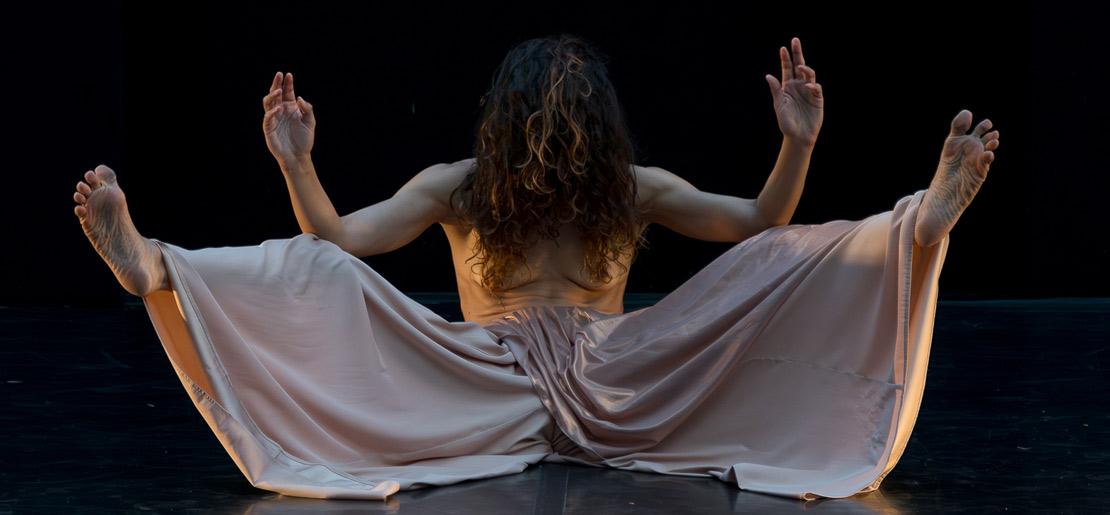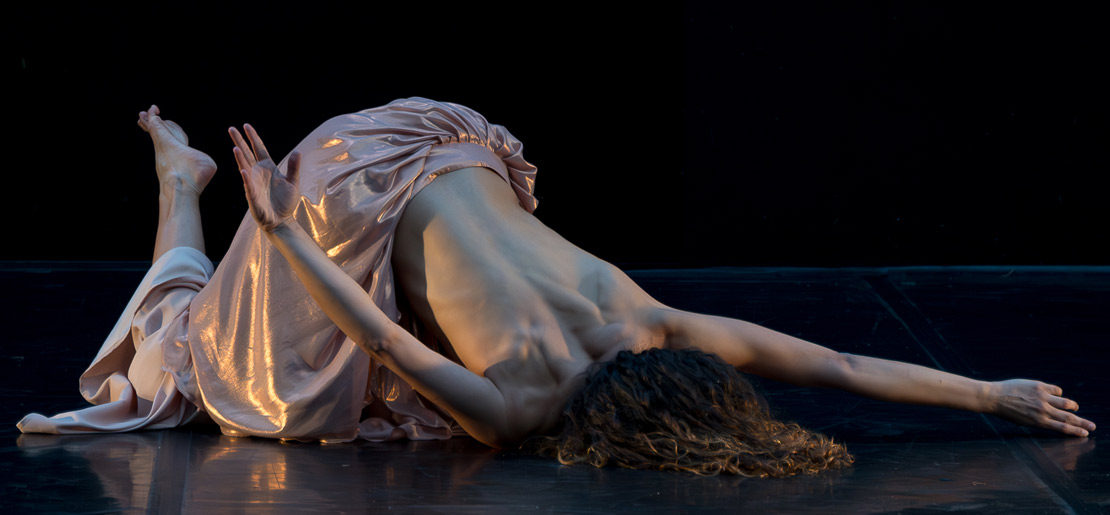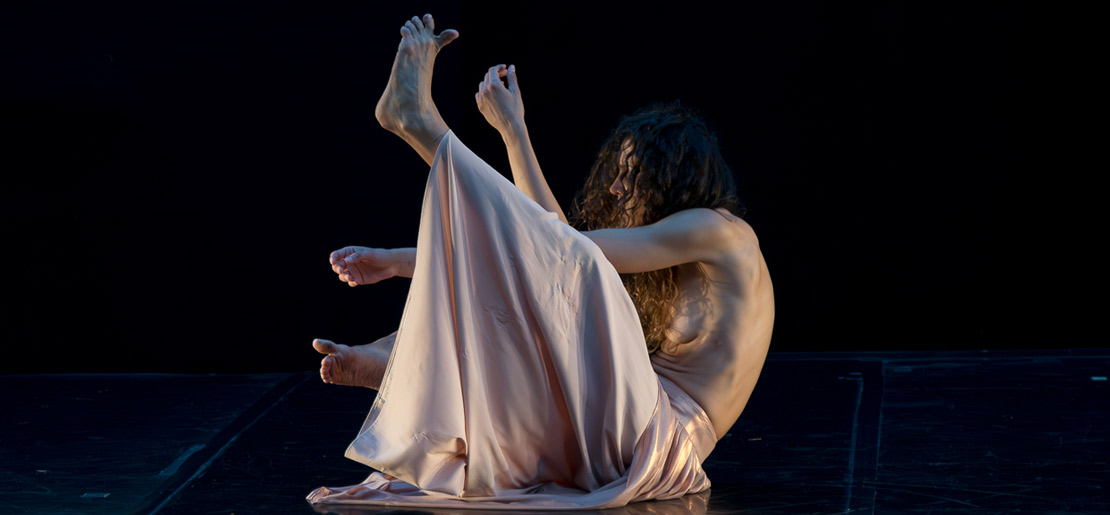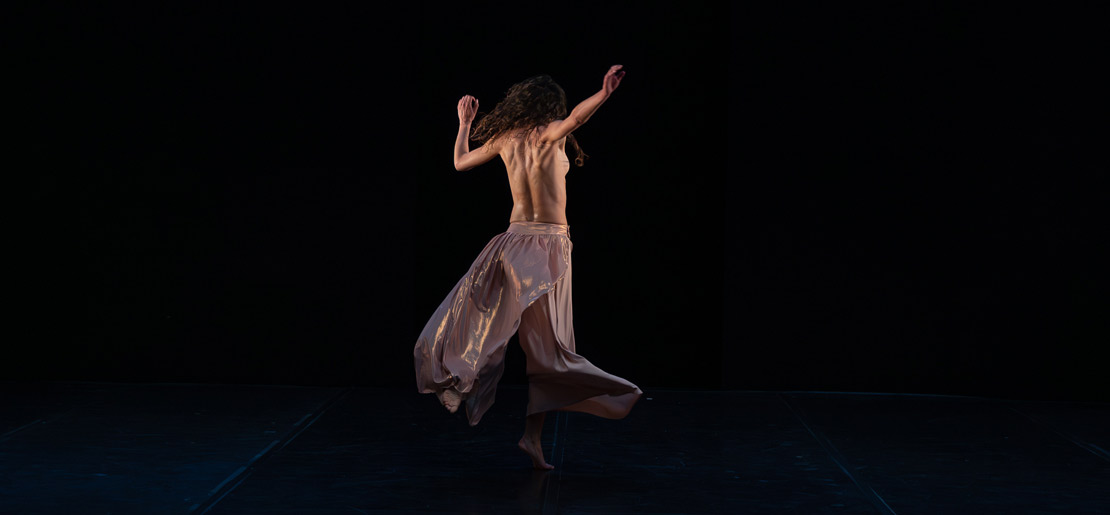photos Antonio Ficai - Fondazione Armunia
Crediti
ideation, choreography and dance Ilenia Romano
music Edoardo Maria Bellucci
light designer Leonardo Badalassi
video Lorenzo Letizia
vocal coaching Virginia Guidi
costume Ilenia Romano and Svetlana Mikova / realization Liuba Dounaeva
production PinDoc
co-production Umbria Danza Festival
with the support of MiC, Regione Siciliana, Armunia, Home Centro Creazione Coreografica, SPAM! Rete per le arti contemporanee, Anghiari Dance Hub, Viagrande Studios, IterCulture
VACUUM. La conquista del vuoto is a solo that takes inspiration from the changing nuances of the mythical character of Helen of Troy (without revealing her in a descriptive way) to trace her archetypal traits and their possible evolution-resolution. Elena is an "irregular" woman, contradictory, modern and surprising in a predominantly phallocentric world. She arouses different feelings: love, attraction, hate, condemnation, understanding. Of semi-divine origin, she appears beautiful and dangerous, at the mercy of events and a divine will against which nothing can. Her fault does not seem to lie in an act but in a non-action, in a withdrawal. In her name, at the same time victim and "obscure object" of the same desire, massacres and deceptions are carried out.
The work is an ode to those who never feel at home, to those who float in their own emptiness saturated with images of others, to those who seek their own 'Word'. It is a game about annulling and reinforcing parts of oneself in an attempt to rediscover, deform and reform oneself, according to Necessity. It is a journey through iconographies of the sacred feminine, of the bestial, of the Greek world: images that come alive and dialogue in an almost dreamlike landscape in the liminal film between inside and outside. It is a search movement, as ancient as it is current, of (im)possible and permanent self-liberation from oneself.
“... I was worried about that impression of emptiness, that body without expression, that moving almost without will, that strange uprooting in a character so loved and so desired... unlike all the other great protagonists of the tragedy (I am thinking of Medea, Hecuba, Phaedra, Cassandra...) Elena slipped away, escaped... and she had no words, at least not words that could finally give her a face: the expression of a face, not just the beauty recognized by all. You had the impression that Elena did not exist, but the reactions of the others, the images of the others, the stories of the others, the behavior of the others in her name."
(Patrizia Politelli, Elena. Laddove la Parola manca).




